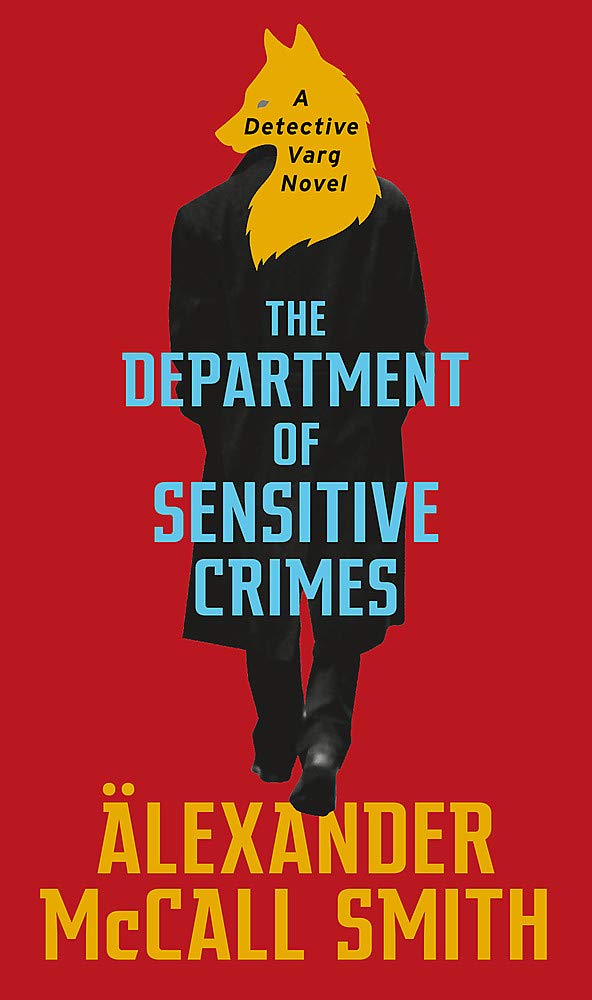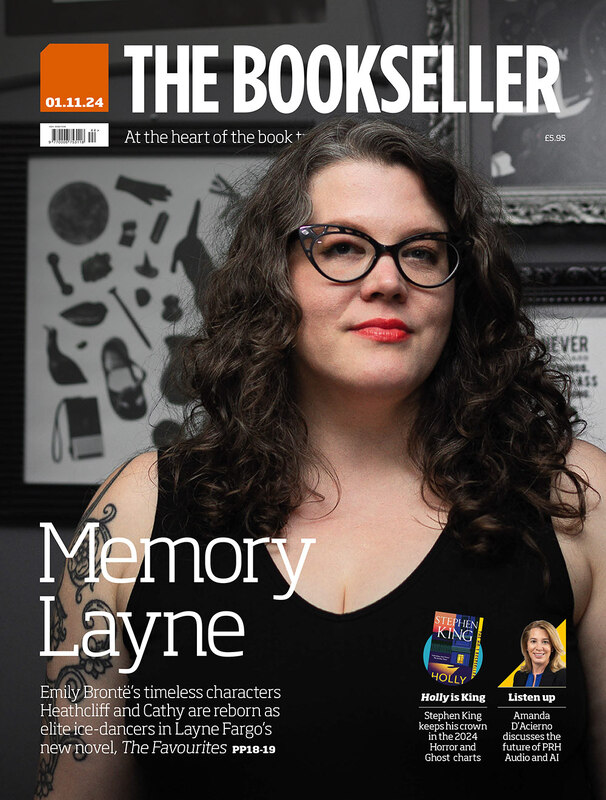You are viewing your 1 free article this month. Login to read more articles.
Alexander McCall Smith | 'You have to know the places you’re writing about'
Alexander McCall Smith is a man of many talents. Trained in medical law, he published his first non-academic book—children’s title The White Hippo (Hamish Hamilton)—in 1980, and until 2015 was a professor of medical law at the University of Edinburgh. He is now emeritus professor. A prolific writer, last year he worked on no fewer than seven separate projects; one of them was writing a libretto for an opera.
Last year also saw the celebration of the 20th anniversary of the publication of the first book in The No. 1 Ladies’ Detective Agency series, which thrust him into the international spotlight. The 20th year brought with it the 20th volume, and McCall Smith is now working on the 21st, to be published this year. He is simultaneously working on other series: his new Ulf Varg “Scandi-blanc” titles (Little, Brown), his serialised novel 44 Scotland Street (Birlinn in hardback, Abacus in paperback), and children’s series The Ship (Birlinn). McCall Smith regularly publishes four or five new books a year, with a range of publishers in the UK, and has sold 7.6 million books, for £48.6m, through the TCM. “I’m planning to continue writing them as I continue to enjoy my conversations with the characters. I haven’t got fed up with any of them yet!”
With stories set all over the world, from Botswana to Australia to Sweden to, of course, Scotland, McCall Smith’s stories are particularly influenced by the places he has visited. “I’m very sensitive to place. If I visit a place, I can get quite struck by it, and that will then dictate the whole book. They’re usually places I have some connection with, which I think is quite important. You have to know, to an extent, the places you’re writing about. You have to be quite careful about that otherwise you could get matters quite wrong.”
The first Ulf Varg, The Department of Sensitive Crimes, is out in March. The name Ulf derives from the old Norse word for “wolf”, and Varg means “wolf” in modern Swedish. So, Wolf Wolf. His partner in crime is a dog called Marten, the only dog in Sweden capable of lipreading. Detective Varg is only concerned with odd but not too threatening crimes and, as such, the new series is part of a genre McCall Smith calls “Scandi blanc: Everybody’s terribly keen on Scandi noir, so this is a sort of [departure from that]. There are no bodies in it—that’s the difference. I’m having such fun writing it.”
 Cosy crime
Cosy crime
Asked why he started to write gentle, comedic crime novels, McCall Smith says: “It enables you to say a great deal about a lot of subjects, to develop the psychology of characters, to muse on all sorts of topics. Some of my books could vaguely be described as falling within the genre of crime fiction, but very broadly, The No 1 Ladies Detective Agency really isn’t crime fiction at all because [protagonist] Mma Ramotswe is concerned with human problems, so she’s more of an agony aunt than a detective. Ulf Varg is a detective, but he’s dealing with problems of human relationships. [Scandi blanc] allows for all sorts of wonderful exploration of character.”
One location that is dear to McCall Smith’s heart, and a fixture in his writing, is Scotland, and he is in the process of writing the next volume of his long-running serialised novel 44 Scotland Street. The novel is currently running through the pages of the Scotsman newspaper, starting in December 2018 and ending in March 2019. Each of the 15 books have been serialised initially by the Scotsman, one of the longest running serials in the world. After the serialisation, the latest will be published as a hardback in August 2019 by Birlinn imprint Polygon.
He was initially warned off starting a serialisation by US novelist Armistead Maupin, whom McCall Smith describes as “revitalising the serial novel” with his Tales of the City, which was first published in the San Francisco Chronicle. “I visited San Francisco and met Maupin at a party, and he said: ‘Whatever you do don’t write a serial novel in the newspaper’ but in fact I got back to Scotland and that’s immediately what I started to do. And I found that I enjoy it greatly, so I do one a year.”
Global and local
McCall Smith was born in what is now Zimbabwe in 1948. He moved to Scotland when he was 17 to study law and now lives in Edinburgh. Discussing his respect and admiration for the Scottish book industry, he says: “Scottish publishers are obviously very special to me because this is where I live, this is where I belong. My experience of being published in Scotland has been entirely positive. I’m very supportive of [the book trade] and I very much admire what Scottish publishers, and indeed the Scottish book industry generally has done in sometimes difficult conditions.
“I think it’s important that we have a healthy publishing industry in Scotland. Scotland had a very important publishing industry, at the end of the 19th century and into the 20th. Then there was a period when it became depleted, and it’s very important that it should continue to be healthy and indeed it is. We’ve got some very enterprising and resilient publishers and quite a number of them are small publishers. It’s a very lively scene and I’m 100% committed to it.”
With his strong affinity to different places and different characters, McCall Smith is pleased the Scottish book trade is renewing its focus on international links: “I think that Scottish publishing should be as international in its outlook as possible. I very much endorse that. I think that Scotland has so many very strong links with countries all over the world; cultural and intellectual links. It’s entirely appropriate that Scottish publishing should have similar links.”
Metadata
Title: The Department of Sensitive Crimes
Imprint: Little, Brown
Publication: 07.03.19
Format: HB (£18.99), EB (£12.99)
ISBN: 9781408711262










